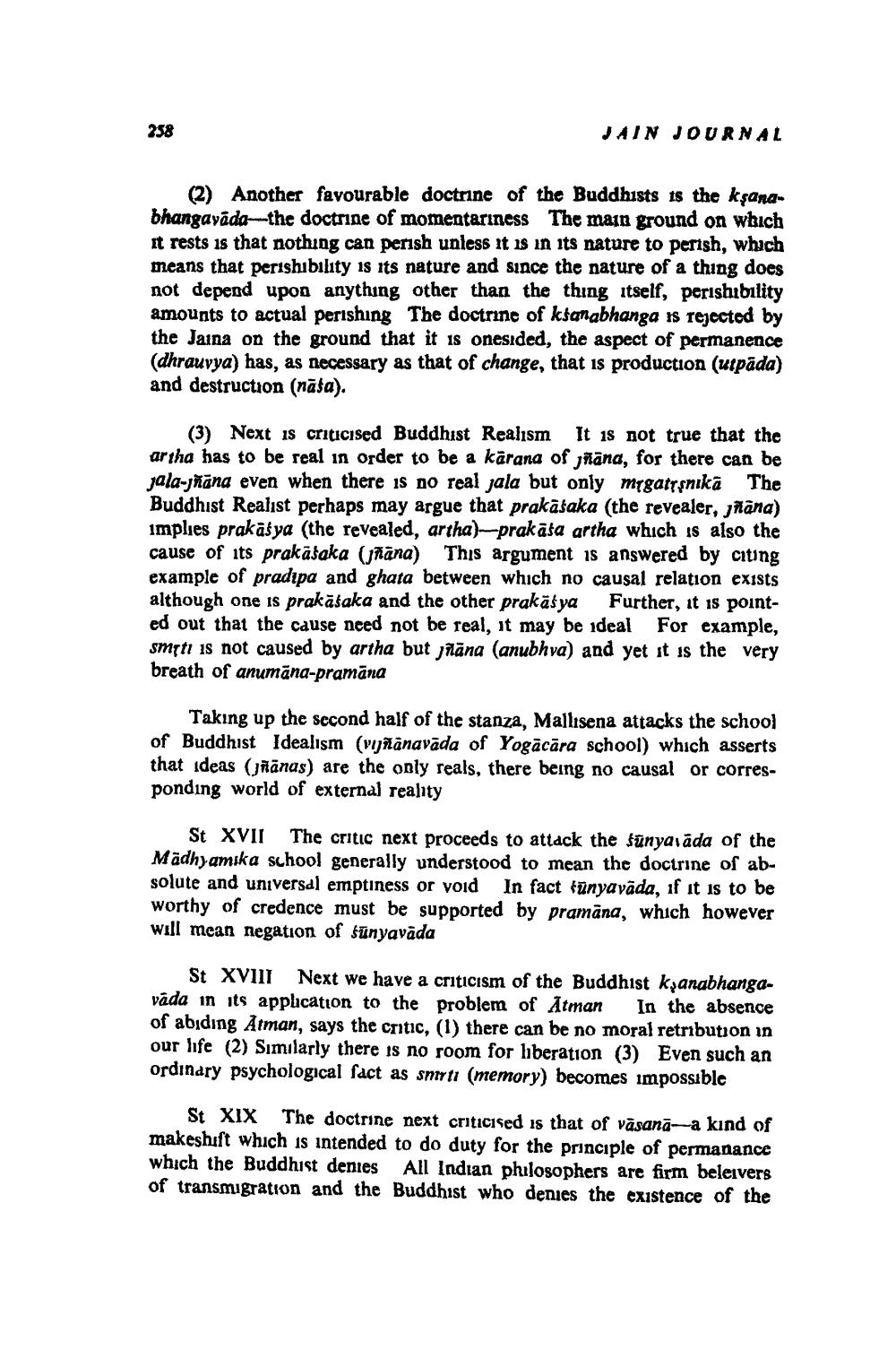________________
258
JAIN JOURNAL
(2) Another favourable doctrine of the Buddhists is the kşanabhangavāda--the doctrine of momentarıness The main ground on which it rests is that nothing can perish unless it is in its nature to perish, which means that perishibility is its nature and since the nature of a thing does not depend upon anything other than the thing itself, perishibility amounts to actual perishing The doctrine of ksanabhanga is rejected by the Jaina on the ground that it is onesıded, the aspect of permanence (dhrauvya) has, as necessary as that of change, that is production (utpada) and destruction (nāta).
(3) Next is criticised Buddhist Realism It is not true that the artha has to be real in order to be a karana of jñana, for there can be jala-jñāna even when there is no real jala but only mygatrsnikā The Buddhist Realist perhaps may argue that prakāšaka (the revealer, jñāna) implies prakāsya (the revealed, artha)-prakāta artha which is also the cause of its prakāšaka (jñāna) This argument is answered by citing example of pradipa and ghata between which no causal relation exists although one is prakāsaka and the other prakäs ya Further, it is pointed out that the cause need not be real, it may be ideal For example, smrti is not caused by artha but jilāna (anubhva) and yet it is the very breath of anumāna-pramāna
Taking up the second half of the stanza, Mallisena attacks the school of Buddhist Idealism (vijñānavāda of Yogācāra school) which asserts that ideas (jñānas) are the only reals, there being no causal or corresponding world of external reality
St XVII. The critic next proceeds to attack the Sünyai āda of the Madhyamika school generally understood to mean the doctrine of absolute and universal emptiness or void In fact fünyavāda, if it is to be worthy of credence must be supported by pramāna, which however will mean negation of sünyavāda
St XVIII Next we have a criticism of the Buddhist kşanabhangavada in its application to the problem of Atman in the absence of abiding Atman, says the critic, (1) there can be no moral retribution in our life (2) Similarly there is no room for liberation (3) Even such an ordinary psychological fact as spirti (memory) becomes impossible
St XIX The doctrine next criticised is that of vāsanā- a kind of makeshift which is intended to do duty for the principle of permanance which the Buddhist denies All Indian philosophers are firm beleivers of transmigration and the Buddhist who denies the existence of the




